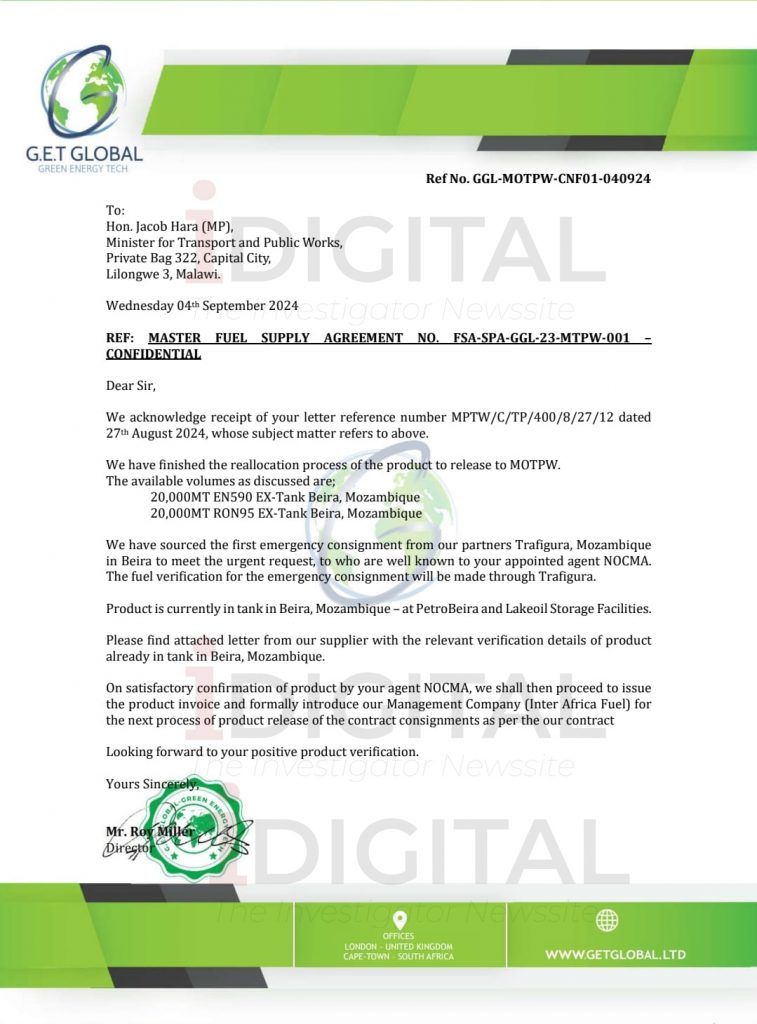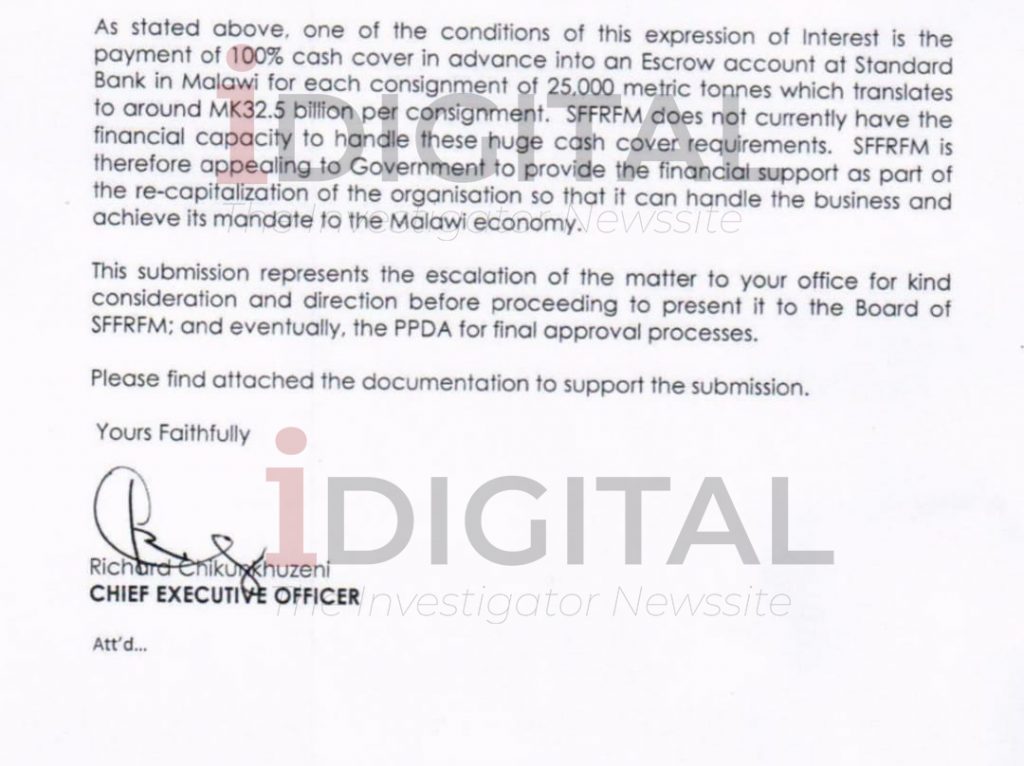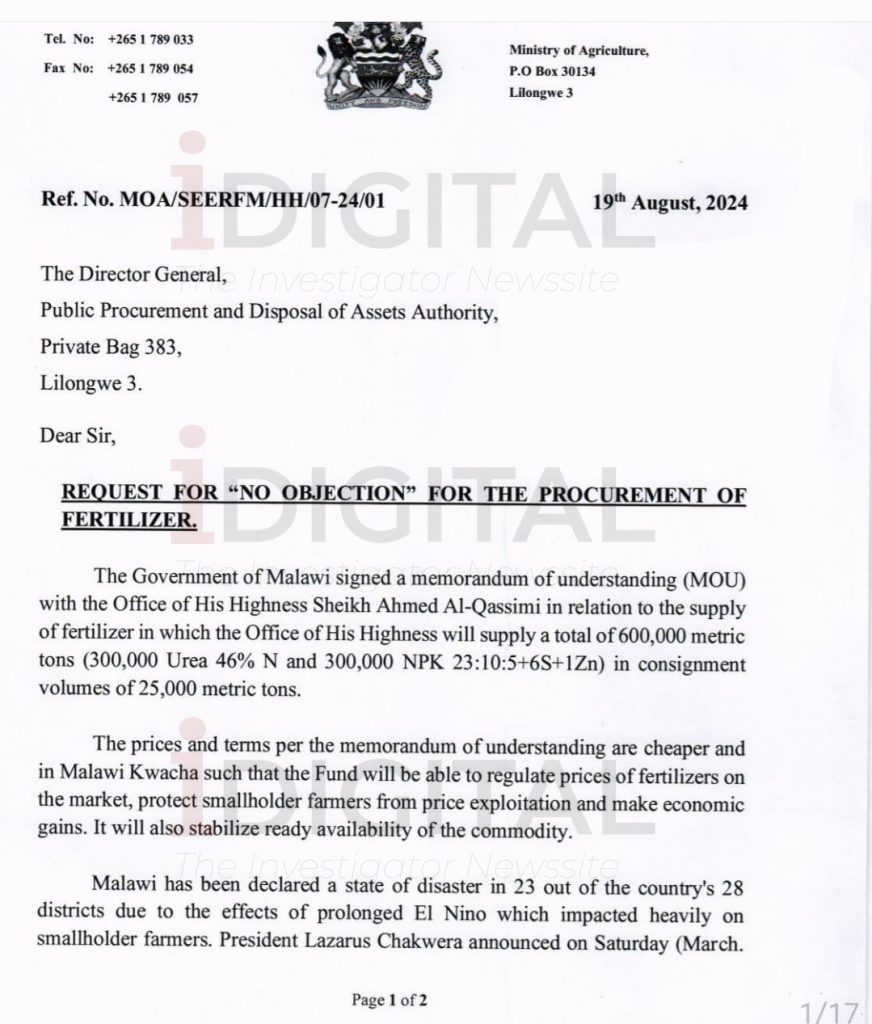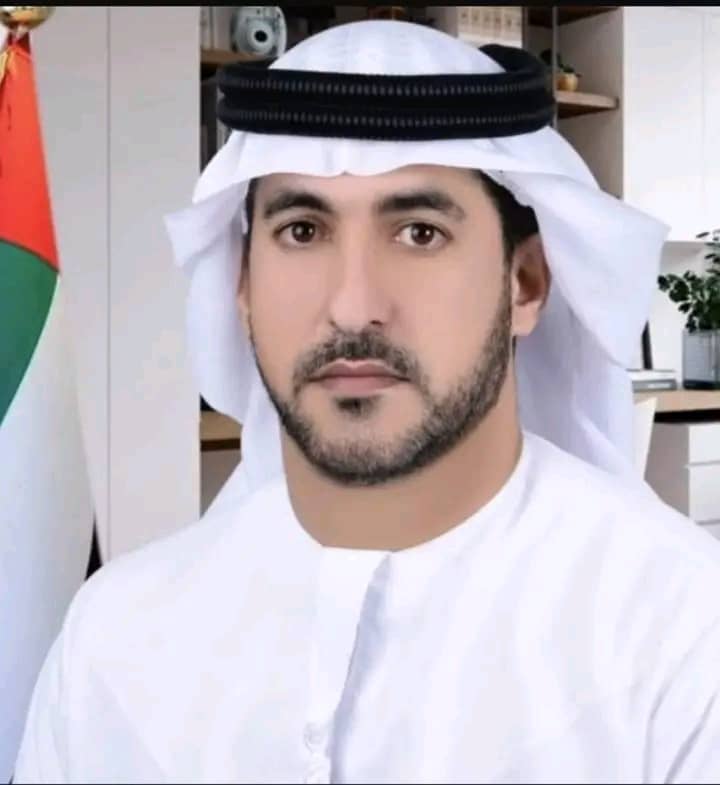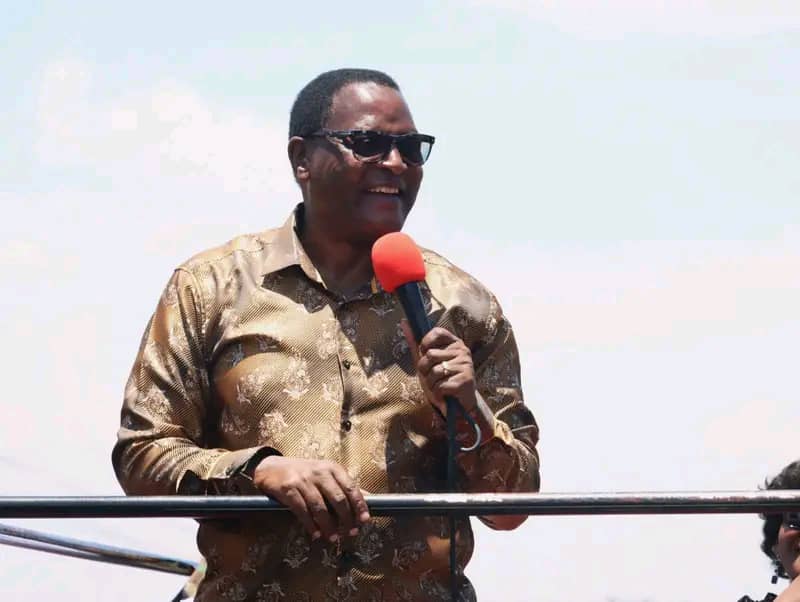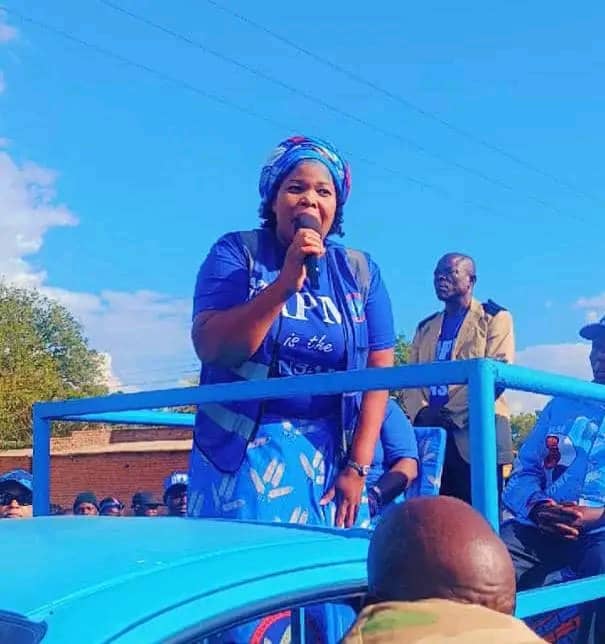By Burnett Munthali
The genuine Office of His Highness Sheikh Ahmed Al Qassimi has unequivocally rejected any contracts, expressions of interest, or insinuations that it holds business interests with any entities in Malawi. This decisive statement underscores a growing concern regarding the misuse of the Sheikh’s name in fraudulent dealings within the country.
In light of recent events, a recorded telephone interview with an official from Sheikh Al Qassimi’s office is available on our website, allowing Malawians to hear firsthand the official position regarding these matters. Disturbingly, the same name and office appear on documents that have been forged, allegedly expressing interest in dealings with the National Oil Company of Malawi (NOCMA) and the Smallholder Farmers Fertilizer Revolving Fund of Malawi (SFFRFM).
The signing of a Memorandum of Understanding (MoU) with a purported “fake Sheikh” by Malawi’s Minister of Agriculture, Zamba, raises significant questions about her judgment and places the government at considerable risk of reputational damage. The potential for legal action from Sheikh Al Qassimi’s office over the unauthorized use of his name for fraudulent contracts cannot be underestimated. Such legal repercussions may lead to increased scrutiny of the administration’s dealings, highlighting the urgent need for accountability and transparency within government operations.
The situation surrounding the so-called “fake Sheikh” transcends mere allegations; it reflects a deeper malaise afflicting Malawian governance. The skepticism regarding contracts for fuel and fertilizer—totaling over K1 trillion—brings to light a troubling series of fraudulent activities that may eclipse previous corruption scandals, including the infamous “Cashgate.” This alarming trend indicates that public funds are at risk of being siphoned off through fictitious deals, jeopardizing the country’s economic stability.
Moreover, the apparent inaction from the Anti-Corruption Bureau and other oversight bodies in the face of these revelations raises serious concerns about their effectiveness and independence. The failure to act against what could be the most significant attempt to defraud the Malawian government since 1994 reflects a governance crisis that undermines public trust in institutions meant to protect the public interest.
President Lazarus Chakwera’s leadership is facing increasing scrutiny, with critics arguing that his administration’s failure to confront rampant corruption could define his legacy. The pattern of fraudulent activities, coupled with a lack of decisive action to hold those responsible accountable, paints a troubling picture of a government more focused on personal enrichment than on serving the public.
Chakwera’s continued endorsement of Zamba and others implicated in these schemes suggests a troubling complicity that could irreparably tarnish his legacy. History shows that public figures are often remembered not just for their policies but also for their failures to combat wrongdoing. The specter of corruption, if left unaddressed, will linger long after his presidency, affecting how future generations perceive his tenure.
In conclusion, Sheikh Ahmed Al Qassimi’s statement serves as a clarion call for reform in Malawi’s governance structures. The rejection of fraudulent contracts attributed to his office is not merely a personal affront; it symbolizes the urgent need for accountability within the Malawian government. As citizens await a response from their leadership, the opportunity for genuine reform remains. President Chakwera’s response to this scandal will ultimately shape his legacy, illuminating the critical intersection between governance, accountability, and public trust. Without immediate and effective action, the consequences of inaction could reverberate throughout Malawi for years to come.
